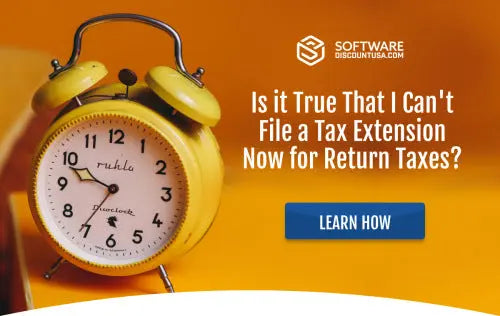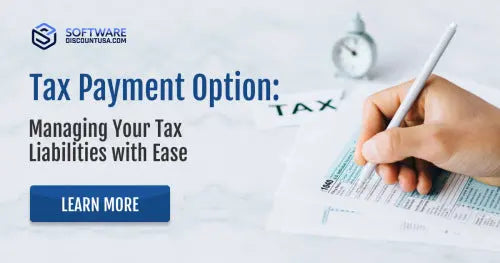
Is it True That I Can't File a Tax Extension Now for Return Taxes? Debunking Common Misconceptions
As tax season approaches, there's often a whirlwind of information and deadlines to contend with. One common misconception that can lead to unnecessary stress is the belief that once the regular tax filing due date has passed, you're out of options for filing a tax extension. Let's clear the air and address this misconception head-on.
Best Deal on TurboTax!
The Extension Myth Debunked
Contrary to the misconception, it's not too late to file a tax extension even after the regular tax filing due date has passed. While the regular due date for tax returns is a significant milestone, it's essential to understand that there are provisions in place that allow you to request an extension of time to file your return, even if you missed the initial deadline.
The Extension Process
If you find yourself needing more time to prepare your federal tax return, an extension can provide you with the breathing room you require. Here's how the extension process works:
Requesting an Extension: To apply for an extension, you must file the appropriate form with the IRS. For individual tax filers, Form 4868, titled "Application for Automatic Extension of Time To File U.S. Individual Income Tax Return," is the go-to option. This form grants you an automatic extension until October 15. Filing Electronically: Thanks to modern technology, you can conveniently file your extension request electronically using IRS Free File. This service is available to individual tax filers, regardless of their income level. By electronically filing Form 4868, you're granted the extension until the October deadline. Paying Estimated Taxes: It's important to note that while an extension grants you more time to file your return, it doesn't grant an extension for paying your taxes. When you file for an extension, you should also estimate the amount of tax you owe and make a payment to the IRS. This payment will help you avoid potential penalties down the line.
Myths Dispelled: The Reality of Extensions
The misconception that an extension can't be filed once the regular due date has passed stems from a lack of awareness about the extension process. In reality, filing an extension is a legitimate option to consider if you need more time to organize your financial documents, calculate your taxes accurately, and ensure you're meeting your tax obligations without rushing through the process.
Special Situations and Exceptions
While the extension process is generally straightforward, certain situations can provide you with additional leeway. For instance, if you are serving in a combat zone, living outside the United States, or qualify for tax relief due to disaster situations, special rules and extensions might apply to your case.
Best Deal on TurboTax!
In Conclusion
As the saying goes, "Better late than never." If you find yourself past the regular tax filing deadline and are worried about missing the boat, rest assured that you can still apply for a tax extension. By filing the appropriate form and making estimated tax payments, you can buy yourself additional time to ensure your tax return is accurate and complete. Remember, it's essential to stay informed about your options and take advantage of the resources available to make your tax filing process as smooth as possible.



